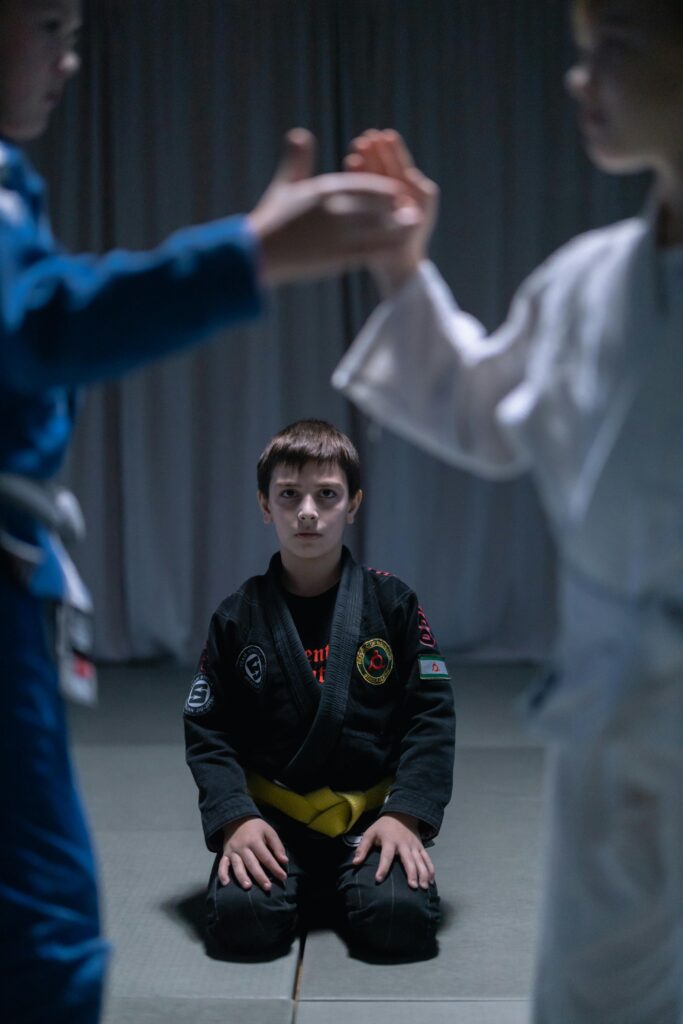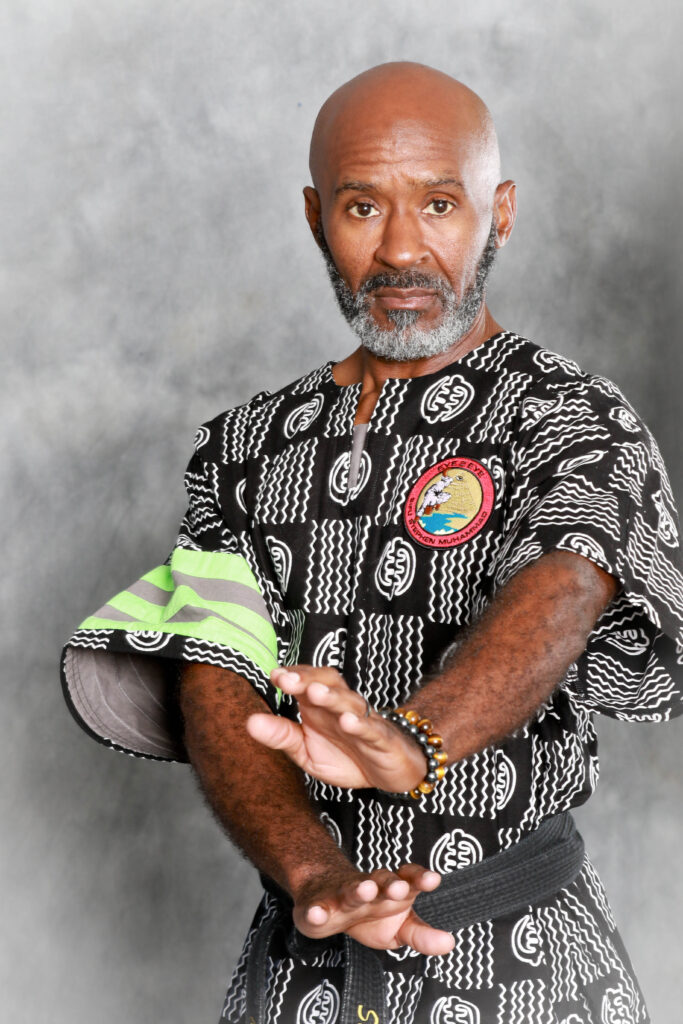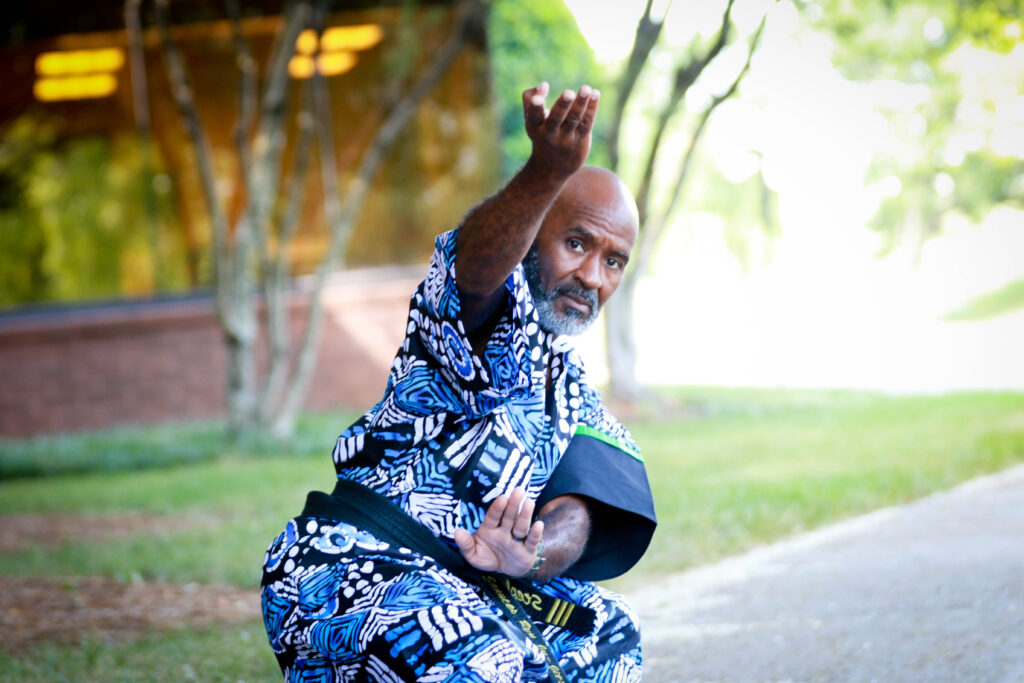The walk to your car at night can feel a little different than during the day. Shadows seem longer, sounds feel sharper, and suddenly, that short walk from the store, gym, or office to your vehicle feels like a test of awareness.
No one wants to think about worst-case scenarios, but personal safety is not something to take lightly. Whether you’re in a parking lot, garage, or a dimly lit street, there are a few simple but powerful habits that can help you stay safe.
These are three things you should always do to stay safe when walking to your car at night. Let’s break them down.
1. Stay Aware and Control Your Environment
Your awareness is your first line of defense. You could have the best self-defense skills in the world, but if you don’t see a threat coming, you won’t have time to react. Most people who get targeted never realize they were being watched—until it’s too late.
Criminals aren’t looking for a fight; they’re looking for an easy target—someone distracted, preoccupied, or oblivious to their surroundings.
Your body language and movement tell a story. Do you walk with purpose, or do you look unsure and lost in thought? The way you carry yourself can deter or invite attention. Here’s how you take control of your environment before anyone else does.
Keep Your Head Up and Your Eyes Moving
- Avoid looking down at your phone or digging in your bag. Your phone can wait. Checking messages or fumbling with your belongings makes you an easy mark.
- Scan your surroundings: Observe the people around you, the parked cars, and any movement nearby. Even a small shift in someone’s behavior could be a warning sign.
- Use reflections: Mirrors, glass doors, and car windows give you a wider view of your surroundings without making it obvious that you’re watching.
🛑 Pro tip: If something doesn’t feel right, trust that instinct. Your gut is smarter than you think.
Walk Like You Belong
- Criminals avoid people who look like they’ll put up a fight. They don’t want attention, resistance, or trouble.
- Walk with purpose and confidence—even if you’re nervous. Move with the kind of deliberate energy that says, “I know where I’m going, and I’m not to be messed with.”
- Keep your posture strong. Stand up straight, shoulders back, eyes up. The way you carry yourself makes a difference.
- Make brief eye contact. A quick, direct glance lets people know you’re aware of them. You don’t need to stare anyone down—just make it clear that you see them.
People who look uncertain or afraid are easier targets. Act like you belong where you are, and you’re already less appealing to a predator.
Recognize Suspicious Behavior
Most criminals don’t rush their attacks. They wait, watch, and choose the right moment. You can spot them before they move if you know what to look for:
- Someone pacing near your car or lingering nearby for no clear reason.
- A person pretending to be lost or asking for directions while closing the distance between you.
- Someone sitting inside a car parked right next to yours—especially if they seem to be waiting for something, or someone.
If anything feels off, trust that feeling. Don’t walk straight to your car. Instead, turn around, head back inside, or find a well-lit area with people around. It’s better to take an extra five minutes than to end up in a bad situation.
2. Keep Your Hands Free and Have a Plan
A common mistake people make when walking to their car at night is carrying too much. Whether it’s groceries, a purse, or a gym bag, having your hands full slows down your ability to react.
If something happens, you need to move fast, defend yourself, or even run—and you can’t do that if you’re juggling five things at once. Make it a habit to stay prepared and keep your hands free when walking to your car at night.
Keep Your Keys in Hand
- Before you leave a building, have your keys ready. Don’t wait until you’re standing next to your car to dig through your bag or pockets.
- Use a keychain with a self-defense tool. A kubotan, whistle, or tactical flashlight can add an extra layer of protection.
- Your keys can double as a weapon. If someone grabs you, holding your keys between your fingers or gripping a kubotan can give you a solid striking tool.
You never want to be caught off guard at your car door. If someone is watching, the seconds you spend fumbling for your keys could be the moment they act.
Carry a Personal Safety Tool
Even if you train in self-defense, carrying a non-lethal safety tool can give you a major advantage. You don’t need to be a fighter to use these effectively.
- Pepper spray – Small, easy to carry, and effective at stopping an attacker in their tracks. Keep it in your dominant hand when walking alone at night.
- A personal alarm – A loud noise can startle an attacker and immediately draw attention. Attach it to your keychain for easy access.
- A flashlight stun gun – A bright light to blind an attacker combined with a high-voltage shock to stop them fast.
🛑 Important: Carrying a tool isn’t enough—you need to know how to use it.
- If you have pepper spray, practice aiming it.
- If you carry a stun gun, test it periodically.
- If you use a tactical flashlight, train yourself to quickly activate the strobe mode.
A tool is only as useful as the person holding it. You don’t want to be figuring it out for the first time in an emergency.
What to Do If Someone Approaches You
Sometimes, danger doesn’t come from the shadows—it walks straight up to you. Not every stranger is a threat, but if someone closes the distance between you without a clear reason, you need to be ready to respond.
If a stranger starts getting too close:
- Put your hand up and say, “I can’t help you.” This makes it clear that you are not interested in engaging.
- If they keep coming, say it louder and firmer: “BACK UP!” Your voice is a weapon—use it to create distance.
- If they still don’t stop, be ready to run, fight, or defend yourself. At this point, they are a threat—act accordingly.
Never let politeness override your survival instincts. You don’t owe anyone a conversation, directions, or assistance—especially at night. Your safety comes first.
3. Secure Your Car Before Getting Inside
Getting to your car safely is only half the battle—you also need to get inside your car and secure it before you can fully relax. Too many people let their guard down the moment they reach their vehicle, thinking the danger is over. It’s not.
Many attacks happen at the car itself because people get distracted. They start texting, adjusting their GPS, or digging in their bag before they even lock the door. That few seconds of inattention is all an attacker needs.
Treat getting inside and securing your car as a priority. If you make it a habit, it will become automatic—and that’s exactly how you want it.
Check Your Car Before You Get In
Before you even touch your door handle, take a few seconds to check the area. A quick scan can prevent a bad situation before it starts.
- Look underneath your car. It’s rare, but some attackers hide low and wait for an opportunity to grab your legs as you approach. A quick glance can rule this out immediately.
- Check the backseat—even if you locked the doors earlier. Someone could have gained access when you weren’t looking. Always check before you sit down.
- Glance at the cars parked next to you. Is anyone sitting inside, watching, or lingering? Does anything seem unusual? Trust your gut—if something feels off, don’t approach your car.
If anything makes you uncomfortable, walk away and get help. You lose nothing by being extra cautious, but you lose everything if you ignore a warning sign and it turns out to be real.
Lock the Doors the Second You Get Inside
Too many people make themselves vulnerable by lingering in their car without locking the doors. They check their phone, fix their hair, or adjust their GPS, completely unaware that someone could be watching them.
Do this instead:
- Get in, lock the doors immediately. Make this a habit—every single time. Don’t wait.
- Start the engine right away. The faster your car is running, the faster you can leave if necessary.
- If someone approaches while you’re inside, honk the horn or drive away. Don’t lower your window. Don’t engage. If they don’t move, get out of there.
Just because you’re inside your car doesn’t mean you’re safe. Your car is only secure if the doors are locked and you’re ready to move.
If Someone is Near Your Car, Don’t Engage
What if you see someone lingering too close to your car? Maybe they’re leaning against the car next to yours, standing nearby without a clear reason, or waiting for something—but you don’t know what.
- Turn around and go back inside. You don’t have to get in your car just because you’re near it. Go back and wait it out.
- Walk toward a group of people or a security guard. Safety is in numbers. Find a well-lit area with others around.
- Use your car alarm if you feel threatened. Your key fob has a panic button—don’t hesitate to use it if you feel uncomfortable. A loud noise can buy you valuable seconds to get to safety.
You don’t owe anyone your time, trust, or presence. If something feels wrong, you don’t have to stick around to find out why.
Your priority is getting home safely—every time.
Bonus Tips for Staying Safe in Parking Lots
- Park Smart – Always choose well-lit areas near entrances. Avoid dark corners.
- Walk With Others – If possible, walk with a friend or ask security to escort you.
- Trust Your Gut – If something feels wrong, listen to that instinct and change your plan.
- Take a Self-Defense Class – Learning how to fight back can give you confidence and skills that last a lifetime.
Stay Ready—Because Safety Starts With You
Staying safe when walking to your car at night is all about awareness, preparation, and smart habits. When you train yourself to stay alert, control your environment, and move with purpose, you take power away from potential threats. But awareness alone isn’t always enough. Real confidence comes from real training.
At Eye2Eye Combat, we go beyond theory—we teach you how to react instantly, defend effectively, and take control in real-world situations.
Our private defense classes give you personalized training tailored to your body, strengths, and lifestyle. Because when danger comes, your best weapon isn’t luck—it’s skill. Book your first session today and take control of your safety.
FAQs
What should I do if I feel unsafe walking to my car at night?
If you feel uneasy, trust your instincts. Return to a well-lit, populated area and seek assistance. Consider asking a security guard or a colleague to accompany you to your vehicle. It’s always better to prioritize your safety.
Are there tools I can carry to enhance my safety?
Yes, carrying items like a whistle, personal alarm, or flashlight can be beneficial. These tools can help deter potential threats and alert others if you need assistance. Ensure you know how to use them effectively.
How can I make my car safer to approach at night?
Park in well-lit areas and avoid spots near large vehicles or dense shrubbery. Before approaching, have your keys ready and scan the area around and under your car. This vigilance can help you identify and avoid potential dangers.





